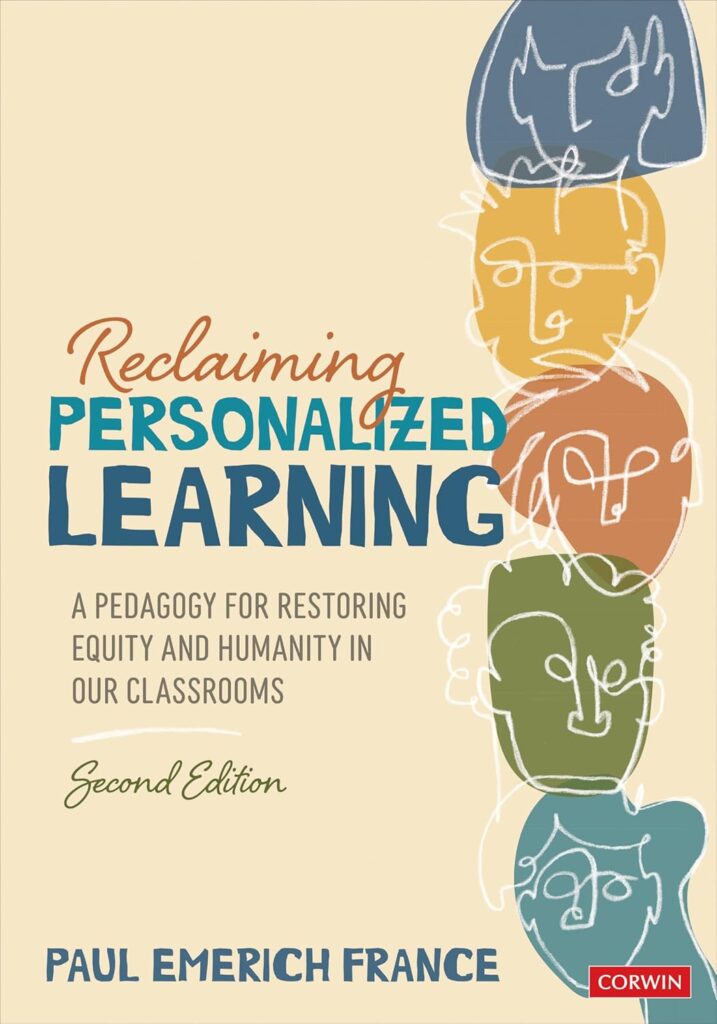Are we truly creating an inclusive environment in our classrooms, or are we still navigating through systems that prioritize some students over others? In this review, we’ll journey together through “Reclaiming Personalized Learning: A Pedagogy for Restoring Equity and Humanity in Our Classrooms,” a thought-provoking book that challenges us to reconsider our approaches in education and offers ideas for putting compassion and fairness at the forefront of teaching.
The Heart of Personalized Learning
In this section, let’s put our heads together to understand what personalized learning really means. It’s more than a buzzword, but do we truly grasp its essence? This book guides us through the philosophy and practice that make learning both tailored and equitable.
A Pedagogical Shift
Shifting the pedagogical focus to both equity and humanity requires creativity and dedication. How often do we engage with educational models that claim to be individualized, yet still leave some students behind? We need a guide that not only acknowledges these issues but also pragmatically addresses them. This book lays out ideas that make our classrooms more inclusive by ensuring that every student feels seen, heard, and valued.
The Importance of Equity
Why must equity be central to our teaching practices? This book emphasizes that personalized learning without equity might leave the most vulnerable students in the shadows. We gain insights into tools and strategies for making sure every child, regardless of their background or abilities, gets an equal opportunity to succeed academically and emotionally.
Reclaiming Personalized Learning: A Pedagogy for Restoring Equity and Humanity in Our Classrooms Paperback – 1 August 2020
AED161 Usually ships within 5 to 6 days
Understanding the Framework: Break It Down
Let’s gather around and break down the core framework of “Reclaiming Personalized Learning” to make it more digestible. This book provides a roadmap that transcends typical educational constructs, making it more applicable in real-world settings.
Holistic Approach
Rather than offer a superficial solution, this book emphasizes adopting a holistic approach to education. It challenges us to integrate emotional, social, and academic development, ensuring balanced growth for our students. How often do we find ourselves focusing solely on test scores? Here, we are reminded that fostering a student’s humanity is just as crucial as their intellect.
Table: Framework Elements
For clarity, let’s lay out the main components of this pedagogical framework:
| Element | Description |
|---|---|
| Student-Centered | Ensures learning paths are tailored to individual interests and needs. |
| Inclusivity | Focuses on expanding access to resources and opportunities. |
| Emotional Support | Incorporates mental health as a critical component of learning. |
| Culturally Relevant | Teaches content that resonates with diverse student backgrounds. |
| Collaborative Learning | Encourages peer-to-peer interaction and cooperative problem-solving. |
Practical Strategies
In every page turned, we’re prompted with practical strategies to implement this framework. Each strategy explained is accompanied by examples, which allows us to visualize how these changes can be actualized in our classrooms. Indeed, it’s one thing to talk about making a difference but another to roll up our sleeves and do it.
Challenges and Triumphs of Implementation
As we embark on the challenge of reinventing our teaching methods, it’s helpful to hear about the turbulence we might encounter—and how victory is possible beyond these hurdles.
Navigating Institutional Barriers
Changing systems from the inside often feels akin to navigating a labyrinth. Institutional barriers, such as ingrained policies or lack of resources, can hinder progress. The book offers insights on how we can advocate for systemic changes within our educational institutions, providing a sense of camaraderie across the teaching profession.
Success Stories
We all appreciate a tale of triumph, don’t we? Within these pages, we’ll find anecdotes and testimonials from educators who have successfully integrated personalized, equitable practices in their classrooms. These stories serve not just to inspire but also to motivate us to imagine possibilities in our own teaching spaces.
Fostering A Culture of Humanity
While implementing structural changes is important, creating a compassionate culture stands at the heart of personalized learning. The book narrates the essence of restoring humanity in education, something that cannot be measured by any standardized test.
Embracing Empathy
Empathy is a golden thread woven throughout the fabric of personalized learning. This book opens our eyes to see empathy as the core of building relationships with students. When we seek to understand their perspectives, we foster an environment where learning can flourish naturally.
Cultivating Respect and Understanding
Creating a respectful and understanding classroom environment is paramount. Students who feel respected and understood are more likely to engage. We learn how these elements, often underestimated, can be as critical as lesson plans in cultivating successful learning experiences.
Final Thoughts: Is This the Future of Education?
As we ponder the concepts we’ve explored together through this book, one question lingers: Is this approach the future we envision for education? It’s a reflective moment where we consider how the insights we’ve gained could reshape not just our classrooms, but the wider educational landscape.
A Call to Action
There is no question that transforming our educational systems demands a collective effort. We are called to be agents of change, advocating for practices that prioritize equally across the board. Let’s take a cue from this book and champion a pedagogy that stands firm on equity and humanity.
Our Role as Educators
It’s challenging but rewarding to play this crucial role in developing young minds. This book reminds us that we, as educators, are empowered to create positive and meaningful experiences for our students. We’re tasked with much more than imparting knowledge; we’re shaping futures imbued with fairness and compassion.
In conclusion, “Reclaiming Personalized Learning: A Pedagogy for Restoring Equity and Humanity in Our Classrooms” delivers more than guidance; it provides a heartfelt push towards an educational system where every student’s potential can truly be reclaimed. If you yearn for a classroom environment brimming with understanding, empathy, and unlimited possibilities, this book just might be the tool you’ve been searching for.
Disclosure: As an Amazon Associate, I earn from qualifying purchases.




